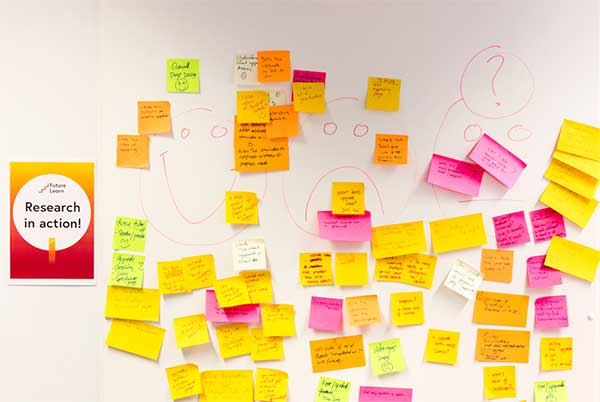Behind the Scenes at FutureLearn


image credit: FutureLearn
If, like me, you like the idea of MOOCs (massive open online courses) but find them a little haphazard or without much in the way of educational foundations, you might be interested in FutureLearn.
FutureLearn grew out of, and is owned by, the UK’s Open University. That was set up nearly 50 years ago as a provider of university courses at a distance. At the time, it was quite innovative, consisting of lectures shown on television, mailed lecture notes, books and, usually, a summer school at which you could meet fellow participants and your tutor. (Here’s a YouTube snippet of a course called ‘Micros in the Classroom’, if you’d like a flavour of what it was like.) It sounds terribly old-fashioned now, but it helped — and still helps — many people gain a Bachelors or even a Masters degree while holding down a full-time job.
The OU is still going strong, but FutureLearn is an exciting development. It consists of a platform on which courses are placed. But unlike some MOOCs you may have taken part in, the ones on FutureLearn are highly structured, with built-in assessments, videos, emailed prompts and a very strong emphasis on a social constructivist approach to education. What that means in practice is that comments and discussion are very much encouraged, so that the people on courses are able to learn from each other.
Interestingly, the courses are free. However, if you sign up to a course and want to have indefinite access to the learning materials and the discussion, you have to pay a small fee, which includes a certificate of participation. For example, it might cost you around $25 plus postage, although for some courses the ‘premium’ version might cost over $70.
As well as being well-structured, the courses are well-designed from a user experience point of view. For example, before you even sign up for the course you’re told how long it lasts and how many hours a week you’ll need to devote to it (see screenshot). Also, every video comes with a transcript, which I’ve found very useful indeed.

On the subject of user experience, I was invited to visit the FutureLearn offices by NewCo London 2017last week, where I and a few others got to experience being in a focus group. The way FutureLearn develops courses is a great example of agile software development. What that means is that instead of spending months developing something, only to discover that a lot of people don’t like a particular aspect, the development team develops a prototype, has people in to look at it, try it out, and give them feedback, tweaks the prototype, and then develops the next stage, at which point they follow the same procedure. You can read about this approach in greater depth in the article entitled Agile vs waterfall.
Tech & Learning Newsletter
Tools and ideas to transform education. Sign up below.
What this looked like in practice was quite fascinating. A volunteer was taken into a side room, where he was shown a prototype course and asked to comment on various aspects of it, in the form of a one-to-one interview. The rest of us could see and hear what was going on, courtesy of the video link shown on the whiteboard.
We were also invited to give our own reactions in the form of the ubiquitous post-it notes (stickies). After a few minutes we were asked to place our stickies on the whiteboard under a smiley face, sad face, or confused space. It’s quite surprising how much information you can elicit from a group in a very short space of time, as you can see from the photo.
This peek behind the scenes was fascinating, but returning to the front of the stage, what kind of courses are on offer? In a word, all. You can take a university module and gain academic credits for doing so, or a professional module in, say, nursing — many such courses are recognised by the professional body concerned — or short course for pleasure, in, say, fiction-writing.
The bodies offering their courses come from all over the world, so the course participants are an international bunch too. The whole caboodle is funded by revenue sharing, with the organisation providing the course and FutureLearn each taking 50%.
If you’re a team leader in your school, a FutureLearn course could be a great way for the team members to learn together, while hearing the views from potentially thousands of other people from around the world. One of the big issues in schools, in my opinion, is that they often work in isolation from each other. So what seems like amazing innovation in one school may appear very old-fashioned and mundane to another. Perhaps FutureLearn is providing a low-cost way of avoiding insularity.
Terry Freedman is an ed tech writer, trainer and speaker. He publishes the ICT & Computing in Education website at www.ictineducation.org.
